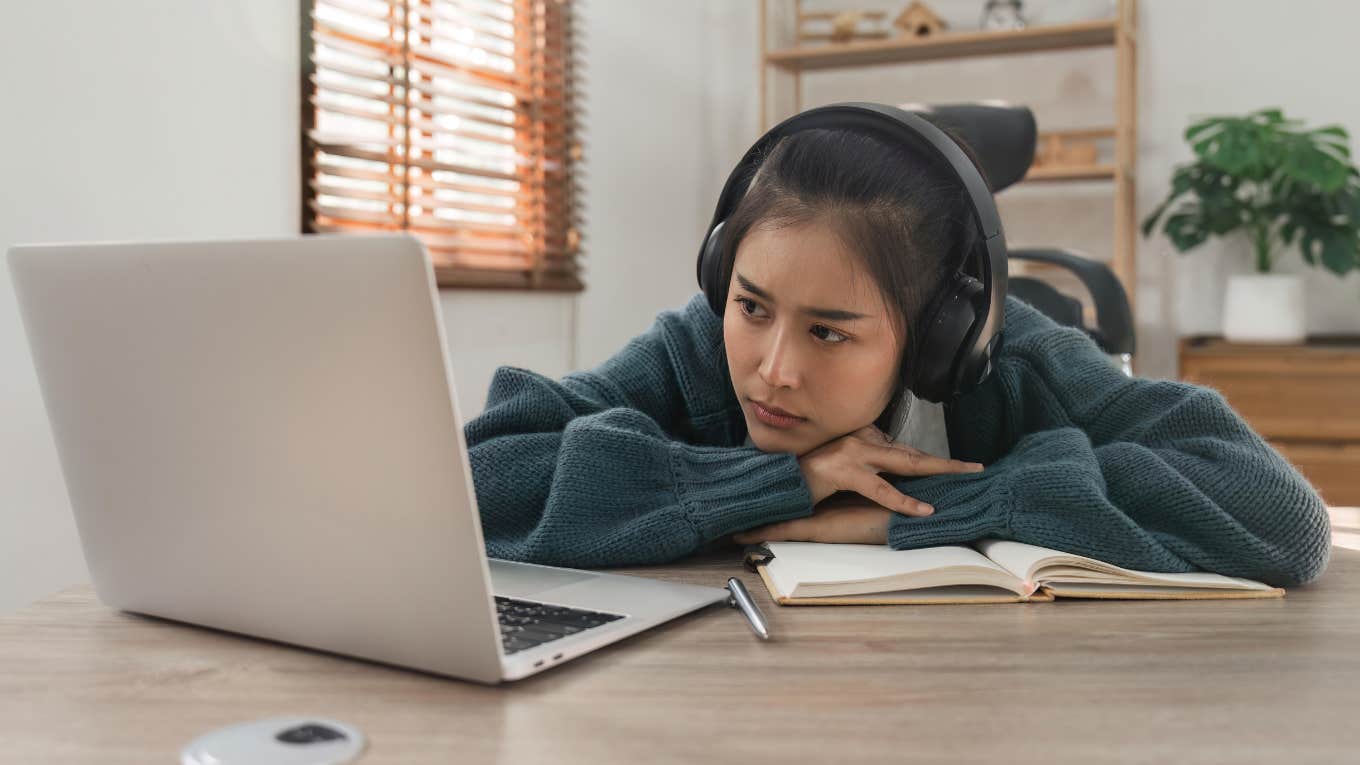Teacher Details Why School Start Times Are ‘Way Too Early’ — And Research Agrees
“I guess when your kids say, ‘five more minutes,’ they may be telling you the truth.”
 Natee Meepian's Images / CanvaPro
Natee Meepian's Images / CanvaPro Most teenagers' days are filled to the brim. Between school, homework, sports, extracurriculars, hanging out with friends and spending time with family, their days are jam-packed. To make matters worse, they have to wake up and get to school before most adults have even left for their 9 to 5.
Teacher and comedian Devin Siebold recently argued on TikTok that school start times are “way too early,” especially for high school students. In addition to numerous studies, Siebold shares his own students’ experiences with tardiness, lacking grades, and being generally unhappy and unenergized early in the morning.
The teacher insisted that school starts ‘way too early’ for older students, pointing to research that backed up his claim.
“Schools are opening earlier than the bar at a tribute Jimmy Buffet tribute concert despite science pushing back harder than a trailer park screen door in a Hurricane,” Siebold admitted. “So, why aren’t we listening?”
Pre-pandemic research from school districts revealed that 8 a.m. is the average start time for high schools across the country, with almost 42% of schools starting earlier than that and 10% starting before 7:30 a.m.
But according to this teacher — and the American Academy of Pediatrics — these start times are “too early” and it’s essential that schools shift their times later to allow middle and high school students to get an appropriate amount of sleep for their age.
School districts with later start times are more likely to rank higher in education, based on attendance, GPAs and test scores.
Not only do attendance and test scores increase significantly for students with later start times, but their final grades and GPAs also increase as a direct result of getting more sleep, being more energized and feeling happier and healthier at school.
A National Education Association study revealed that among students with delayed start times, final grades were over 4.5% better than their counterparts who took the class early in the morning.
 Photo: Yan Krukau / Pexels
Photo: Yan Krukau / Pexels
Research also shows that later start times bolster better physical and mental health.
While grades and attendance are incredibly important when we’re discussing school, the overall health and wellness of students are of utmost importance. The American Psychological Association admitted shifting start times would help to prioritize these students’ needs, resulting in decreases in disciplinary action and increases in reported happiness and quality social interactions.
“I guess when your kid says they need ‘five more minutes,’” Siebold said, “they’re probably telling the truth.”
Not only does a later start time actively help students’ physical health — in areas like digestion, heart health, and immune system activity — it can also help prevent accidents that have the potential to harm students severely. Studies show that not only do teenage driving and bus accidents decrease when start times trend later, but students are less likely to be waiting for the bus in the dark hours of the morning, putting them in a safer, less vulnerable state.
For student-athletes, research shows that later start times also reduce the risk of injury. As they get more, higher-quality sleep, their energy levels, physical wellness, and happiness increase.
With so much research about the benefits of starting later, what’s the delay? Why don’t more parents, teachers, and school districts advocate for the change? The answer is simple — routines. The logistics of shifting start times feel overwhelming for many districts, with things like bus schedules, teacher hours and parental routines riding on the time students start school.
Critics of shifting start times argue students will ‘just stay up later,’ but research on teenagers' circadian rhythms shows that’s actually a good thing.
Less than 40% of parents advocate for a later start time for their children, not because they dispute the research behind it, but oftentimes because of the stress of scheduling. Whether it be their own work schedule, getting their kids on the bus, picking them up after school, or planning day-care, shifting these schedules would mean a great deal of organizing for a ton of parents.
Others say that the shift would only “encourage” teenagers to stay up later, leaving them just as tired in the morning.
 Photo: Karolina Grabowska / Pexels
Photo: Karolina Grabowska / Pexels
However, once the switch was made, many parents found it incredibly beneficial.
“Parents interviewed said that the switch allowed them for less stress in the mornings and more time to get ready,” Siebold said.
As for their sleep schedule, research on teenagers’ “circadian rhythms” — otherwise known as their “internal clock” — shows that they actually benefit from later bedtimes.
“Teens experience a natural shift in circadian rhythms,” sleep expert Laura Sterni explained, “This makes it difficult for them to fall asleep before 11 p.m.”
As more and more districts hopefully shift their start times later to benefit their students, education will shift as a whole — giving teachers, parents, and students a more enjoyable and healthy experience in the long run.
Zayda Slabbekoorn is a news and entertainment writer at YourTango focusing on pop culture analysis and human interest stories.
